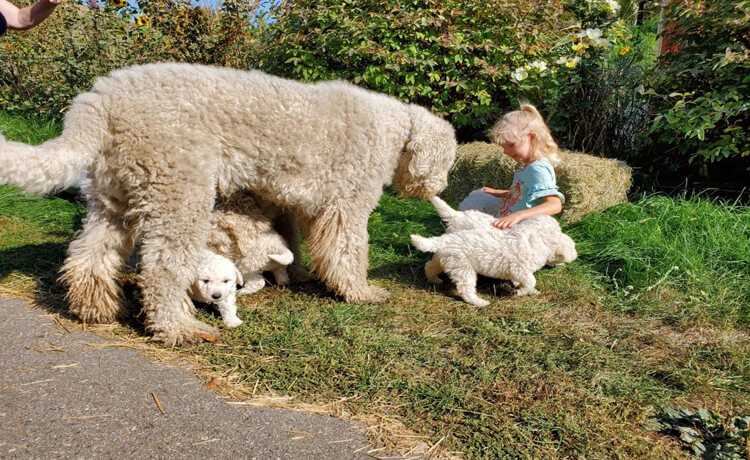
Komondor
The Komondoris a majestic and unique breed that stands out due to its long, corded coat, making it one of the most distinctive dogs in the world. This Hungarian breed is famous for its history as a livestock guardian, with a protective nature and a deep loyalty to its family. Whether you're considering adding a Komondorto your home or are simply fascinated by this remarkable dog, here's everything you need to know about this majestic breed.
Key Features of the Komondor Dog Breed
- Size and Build: The Komondor is a large, strong dog with a muscular build. Males typically stand between 27 to 30 inches tall and weigh between 100 to 130 pounds, while females are slightly smaller but still substantial in size.
- Coat: Perhaps the most recognizable feature of the Komondoris its thick, white, corded coat. These natural cords serve as protection from the elements and predators. The coat requires diligent grooming to prevent matting and to maintain its signature look.
- Temperament: The Komondor is a protectiveand loyaldog, making it an excellent guardian of home and property. Though it is often reserved around strangers, it is deeply affectionate and loving with its family.
Training and Socialization for the Komondor
- Early Socialization: The Komondor is known for being independent and sometimes stubborn. Early socialization with other dogs, pets, and people is essential for a well-rounded temperament. Consistent, positive reinforcement is the key to successful training.
- Guarding Instincts: Being a livestock guardiandog, the Komondor is naturally protective. It is essential to train them to discern between actual threats and regular household activities, as their instinct to guard can be strong.
Grooming and Coat Care
The Komondor’s corded coatrequires significant grooming to stay in top condition. Owners should be prepared to spend time separating the cords and cleaning them regularly. Bathing should be done carefully, as moisture can lead to mildew in the coat.
- Cord Maintenance: Starting cord formation at an early age can help keep the coat manageable. It’s recommended to brush the cords at least once a week and separate them as they form.
- Shedding: Komondors shed very little, but hair can become tangled in the cords and require regular cleaning.
Health Considerations for the Komondor Dog Breed
- Lifespan: The average lifespan of a Komondoris between 10 to 12 years.
- Common Health Issues: Like many large breeds, the Komondorcan be prone to health issues such as hip dysplasia. Regular veterinary check-ups and maintaining a healthy weight are key to avoiding joint problems.
- Ear Care: Due to the long cords around the ears, it is important to keep the ears clean and dry to prevent infections.
Is the Komondor Right for You?
The Komondoris a wonderful choice for experienced dog owners who have the space and time to properly care for this unique breed. Its strong, protective nature makes it ideal for guarding property and providing security, while its loyal temperament makes it a loving family companion.
Affiliate Products
Up to 75% Discount

Dog Collar with Health Monitoring
BUY NOW »
Up to 55% Discount

Luxury Faux Furhuge Napping Bed
BUY NOW »

